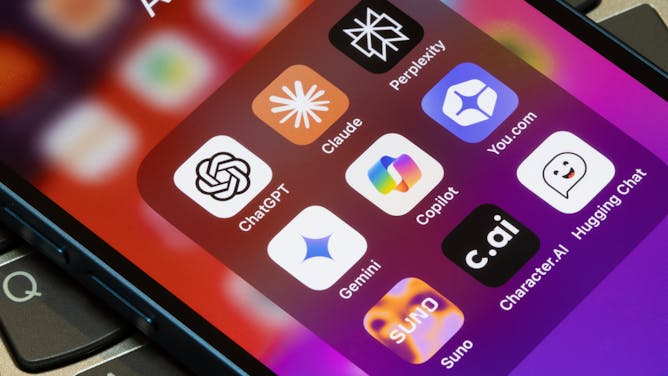|
|
|
|
When Shimon Sakaguchi was a young immunology researcher in the 1980s, he found it difficult to get his research funded. Now he’s a 2025 Nobel laureate in physiology or medicine, celebrated for his breakthrough work uncovering how our immune system knows when and what to attack. “It was a wonderful surprise,” he told me when I spoke to him for the latest episode of The Conversation Weekly podcast.
Sakaguchi shares the prize with researchers Mary Brunkow and Fred Ramsdell for their work to identify the genes behind regulatory T-cells, likened to our body’s ‘security guards’. At first, the motivation for this research was to understand autoimmune diseases such as arthritis or Type 1 diabetes. “But in the course of my research we have gradually understood that T-regs are more important,” he says. Now hundreds of clinical trials are using regulatory T-cells to test potential treatments for cancer and to avoid the rejection of organ transplants. Read more from the interview and listen to the podcast here.
Israel and Hamas finally indicated they would agree to a ceasefire yesterday. While many have criticised his proposed peace plan, Donald Trump’s negotiating tactics may have changed the course of the war, according to diplomacy expert Asaf Siniver.
And with shares in US tech firms at a record high, many are beginning to ask whether the world is witnessing an AI bubble. There are certainly some things that might bring stock markets crashing back down to earth.
|

|
Gemma Ware
Head of Audio, The Conversation UK
|
|

Shimon Sakaguchi celebrates winning the 2025 Nobel prize in physiology or medicine.
JIJI Press/EPA
Gemma Ware, The Conversation
Listen to Shimon Sakaguchi, one of the 2025 Nobel laureates in medicine, talk about his research on The Conversation Weekly podcast.
|

Donald Trump and Benjamin Netanyahu at a White House press conference to announce the Gaza peace plan, September 29 2025.
EPA/Jim Lo Scalzo/pool
Asaf Siniver, University of Birmingham
The US president’s very public scolding of both Israel and Hamas for being difficult about his peace plan may have paid off.
|

Tada Images/Shutterstock
Richard Whittle, University of Salford; Stuart Mills, University of Leeds
The value of many tech firms has soared – but some observers are now worried.
|
World
|
-
Colin Alexander, Nottingham Trent University
Donald Trump might seem like an unlikely candidate, but previous winners have come in for criticism too.
-
Damien Short, School of Advanced Study, University of London
Nearly 150 land and environmental defenders were killed in 2024, mainly in Latin America.
-
Scott Lucas, University College Dublin
Middle East expert Scott Lucas addresses the key issues of the Gaza ceasefire deal.
-
Jonathan Este, The Conversation
Will the ceasefire hold? And will the US president get his Nobel peace prize?
|
|
Politics + Society
|
-
Aled Mark Singleton, Cardiff University
Places shape who we are. In Port Talbot, what happens when the steelworks go but the feelings remain?
-
Jacques Hartmann, University of Dundee; Edzia Carvalho, University of Dundee; Samuel White, University of the West of Scotland
In the most recent YouGov poll on this issue, 54% of Conservative voters and 72% of Reform voters were in favour of leaving.
-
John Curtice, National Centre for Social Research
A large-scale survey has charted social attitudes and views and constitutional preference since Scotland got its own parliament.
|
|
Arts + Culture
|
-
Bran Nicol, University of Surrey
Krasznahorkai is a deeply modernist writer with an unwavering faith in beauty and art.
-
Blanka Grzegorczyk, University of Cambridge; Manchester Metropolitan University
Noughts and Crosses shows systems of oppression at work and how enable racial segregation and traumatise people.
-
Christina Wilkins, University of Birmingham
The differences between portrayals in the UK and US suggests different understandings of masculinity and expectations of male mental health.
|
|
Education
|
-
Penelope Hannant, University of Birmingham; Julia Carroll, University of Birmingham
Without enough resources to follow up on screening results, teachers, parents, and children may be left feeling frustrated and unsupported.
-
Claire Oakley, University of Essex; Silke Paulmann, University of Essex
Teachers can create supportive, optimal learning environments through a nuanced use of voice in the classroom.
|
|
Environment
|
-
Will de Freitas, The Conversation
What chimpanzees can teach us about climate change
-
Alex Ford, University of Portsmouth
A recent survey of environmental toxicologists has revealed that they believe that chemical pollution can and is affecting the health of humans and wildlife.
|
|
Health
|
-
Clodagh Toomey, University of Limerick
Globally, osteoarthritis affects nearly 600 million people. Yet fewer than 50% are offered the one proven treatment: exercise.
-
Beverley O'Hara, Leeds Beckett University; Jordan Beaumont, Sheffield Hallam University
Stigma against weight loss drugs is driving some users to take them in secret.
-
Christina Wilkins, University of Birmingham
The differences between portrayals in the UK and US suggests different understandings of masculinity and expectations of male mental health.
-
Philip Clarke, University of Oxford; Rhys Thomas, University of Oxford
Lotteries may be fair in theory, but new research shows people prefer expert committees to decide who gets scarce medical treatment.
-
Dan Baumgardt, University of Bristol
Elite darts technique requires a combination of both physical and mental athleticism.
|
|
Science + Technology
|
-
David Stupples, City St George's, University of London
New technology could leave few places for submarines to hide.
-
Steve Taylor, Leeds Beckett University
Research in psychology has found a link between wealth and selfishness
|
|
|
|
< | |